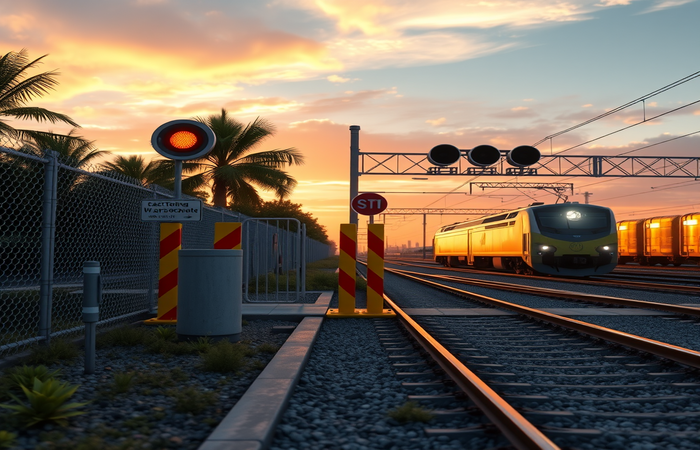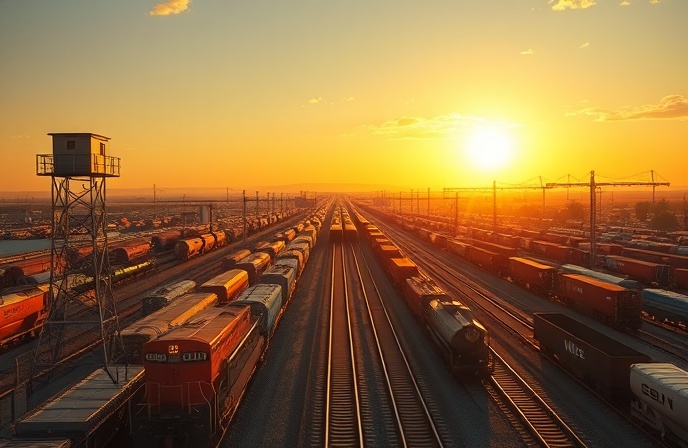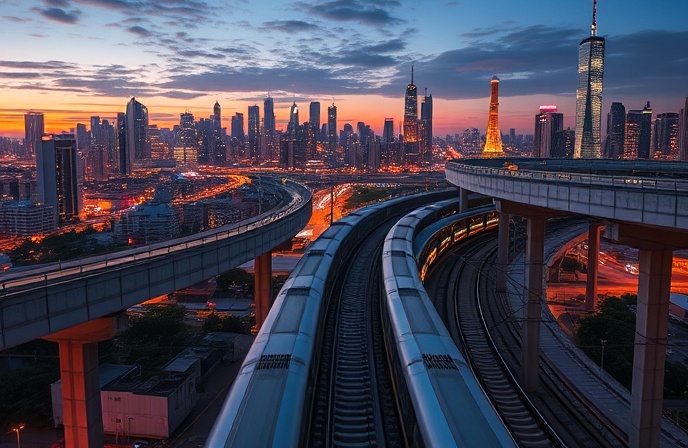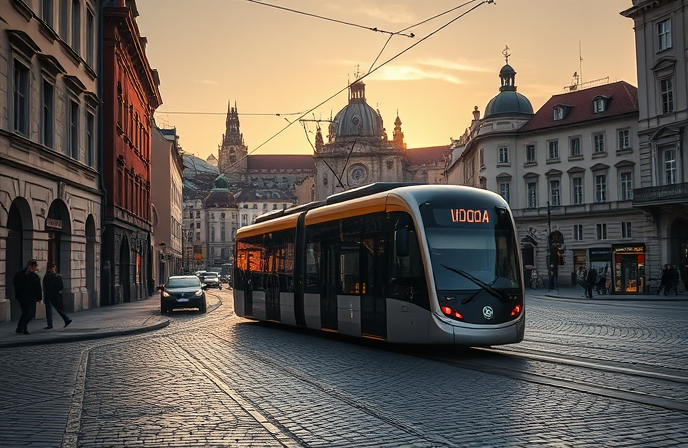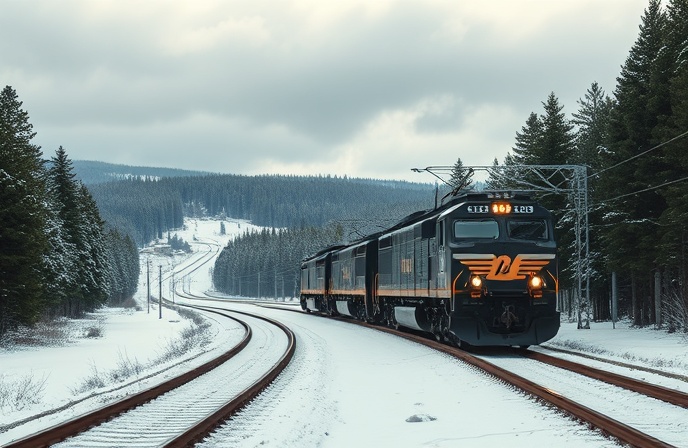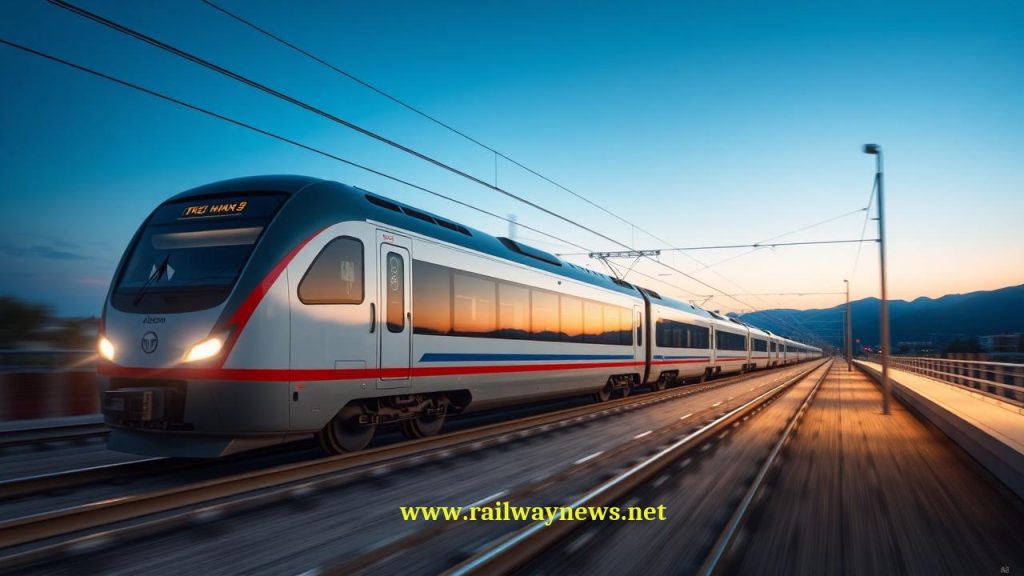RS ZERO: Future of Rail: Hybrid Train Drives Czech Infrastructure & Sustainability
Stadler unveils RS ZERO hydrogen-battery train for Czech Republic’s rail network. The zero-emission train debuts June 12, 2025, in Ostrava.
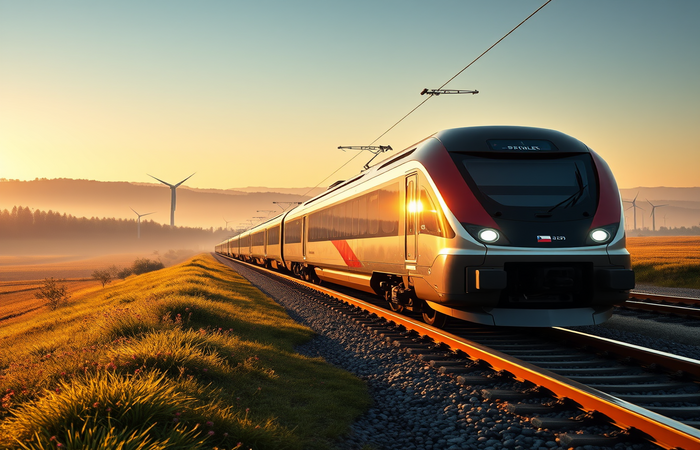
Stadler Unveils RS ZERO: A Hydrogen and Battery-Powered Train for the Czech Republic
In a significant step towards sustainable rail transport, Stadler has launched its RS ZERO train, a revolutionary zero-emission solution designed to operate on hydrogen and battery power. Unveiled at the Rail Business Days in Ostrava, Czech Republic, on June 12, 2025, the RS ZERO aims to modernize the Czech Republic’s rail network by providing a green alternative to the existing diesel fleet, particularly on lines lacking electrification. This innovation promises to drastically reduce carbon emissions and enhance the efficiency of regional rail services. This article delves into the key features of the RS ZERO, its strategic importance for the Czech Republic, and the broader implications for the future of railway sustainability. The “Who” is Stadler, the “What” is the RS ZERO train, the “When” was June 12, 2025, the “Where” is Ostrava, Czech Republic, the “Why” is to provide a sustainable solution for non-electrified rail lines and the “How” is through hydrogen and battery power.
RS ZERO: A Hybrid Propulsion System
The RS ZERO is a testament to Stadler’s commitment to sustainable railway technology. It is a fully decarbonized locomotive that combines hydrogen fuel cell technology with battery power. This hybrid approach allows the train to operate on both electrified and non-electrified tracks, offering unparalleled versatility. The train can travel up to 800 kilometers on a single hydrogen fuel cell charge, and a range of 150 kilometers on battery power alone. The flexibility of this dual propulsion system addresses the current electrification gap in the Czech Republic, where only 35% of the rail network is electrified. The RS ZERO is available in single or double-car units, with a seating capacity of up to 165 passengers, making it ideal for regional routes with varying traffic demands. This design offers a low-emission and emission-free hybrid operation, supporting long-term environmental sustainability goals.
Addressing the Czech Republic’s Infrastructure Needs
The introduction of the RS ZERO is particularly timely for the Czech Republic, which faces a critical need to modernize its aging rolling stock. The Czech government, along with neighboring countries, recognizes the urgent requirement for sustainable solutions that enhance both financial efficiency and environmental protection. Replacing the aging diesel vehicles with zero-emission alternatives is therefore a major priority. Stadler’s RS ZERO directly addresses these needs, offering a compelling solution for modernizing the Czech Republic’s non-electrified routes. As the second country, after Germany, to adopt the RS ZERO, the Czech Republic is setting a precedent for other nations seeking to transition to greener rail transportation systems. This initiative highlights the broader efforts to promote environmental sustainability in the European railway sector.
Operational Advantages and Passenger Comfort
Beyond its environmental benefits, the RS ZERO is designed with passenger comfort and operational efficiency in mind. The train offers a modern interior, designed to meet the demands of contemporary regional travel. The RS ZERO is the successor to the RS1 model, indicating Stadler’s continuous innovation and improvement of its rolling stock. The hybrid propulsion system and the focus on a modern design, enhance operational versatility and reduce the environmental impact of rail travel. The ability to operate on both electrified and non-electrified tracks significantly improves the efficiency and flexibility of railway operations, and the improved seating capacity makes it ideal for the diverse demands of regional services.
Stadler’s Strategic Expansion and Contract Wins
In addition to the RS ZERO launch, Stadler has recently secured a contract valued at approximately SFr350 million ($419.3 million) with A-Train, the operator of the Arlanda Express in Sweden. This deal includes the delivery of seven FLIRT trains with an option for an additional unit, and a 15-year maintenance contract. A-Train plans to replace its fleet by 2029, demonstrating Stadler’s strong presence in the railway market and its ability to secure long-term partnerships. This expansion in Sweden, coupled with the introduction of the RS ZERO in the Czech Republic, underscores Stadler’s strategic growth and its proactive approach to meeting the global demand for sustainable and efficient rail solutions. This reinforces the company’s reputation as a key player in the industry.
Conclusion
The unveiling of the Stadler RS ZERO train marks a pivotal moment in the transition towards sustainable rail travel in the Czech Republic. This innovative train, powered by a combination of hydrogen fuel cells and batteries, offers a practical and efficient solution to replace aging diesel vehicles on non-electrified lines. Stadler’s forward-thinking approach and its dedication to providing modern and eco-friendly railway technology will contribute to reducing carbon emissions and improving passenger experience, paving the way for a greener, more sustainable future for rail transport. The RS ZERO’s success in the Czech Republic could inspire similar initiatives across Europe and beyond, accelerating the adoption of zero-emission technologies in the railway sector. The blend of environmental performance, operational flexibility, and passenger comfort will ultimately lead to a more resilient and attractive rail network, further demonstrating the potential of hydrogen and battery-powered trains.
Company Summary: Stadler
Stadler is a leading Swiss manufacturer of railway rolling stock. The company is a global provider of train solutions with a strong focus on sustainability and innovation. With a diverse product portfolio ranging from trams and regional trains to high-speed vehicles, Stadler delivers customized solutions to its customers worldwide. Known for its commitment to advanced technologies, Stadler continuously develops and improves its offerings, with a focus on energy efficiency and reducing environmental impact. The RS ZERO reflects Stadler’s dedication to meeting the industry’s evolving needs.

